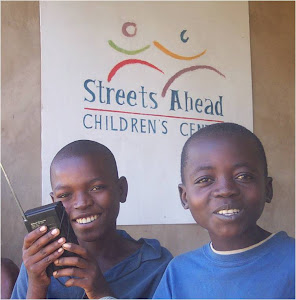The boys are…well, they’re up and down. We have mornings when there are fights and arguments breaking out every half hour, stones being thrown, knives and metal bars being used, kids having to be restrained. The tensions are provoked by everything from mental problems and card games to stealing and the influence of drugs and alcohol.


He is currently sat in front of me, falling asleep on the table to the mellow tunes of Tracy Chapman, but usually he’s bouncing around the centre counting in French and English, conjugating verbs, listing African countries and doing other random other stuff… He’s also been stoned and drunk on several occasions, apparently because people seem to find it entertaining to force him to drink or smoke when he’s wandering on the street begging…
I’m hoping that soon we’ll find the funding to afford a 121 teacher / playworker who can spend most of the day with him and keep him away from situations like that. He’s a bright, adorable and incredibly polite boy with impeccable morals, who definitely inspires you to want to give him every opportunity you can.
Monday will be another milestone. The ten youngest children, who are also those children living in the worst conditions and who want to attend primary school, will move into the centre, blankets will be distributed, with conditions, to all the children and it’ll be the first full week of the daily food programme.
It’s a milestone because hopefully the food will lessen the impetus to steal and to work in harmful labour, the study and work they’ll do to earn the food will occupy them, accommodation will reduce their need to take alcohol and drugs to help them through the nights, the stepped up study programme and short term goals like reaching primary school and vocational training will give them a future worth working towards, the washing facilities and cleaning checks at the weekend in return for food will improve their hygiene, the medical care programme will continue to improve their health, and living, cooking, playing and studying in this environment will give them a little of the security and love that they lack on the street…
There are so many dimensions. But we’re not deluding ourselves. It’s not a guaranteed, set formula for success - any steps forward will be balanced against plenty of setbacks and there will be plenty of learnings and modifications to be made. When you’ve been through what these children have been through and experienced the losses, the hardships, the disappointments, the rejection and the physical and mental abuse, you don’t just adapt to such a huge change in life and your future.
We’re trying to build things up incrementally and at a pace that doesn’t breed complacency, dependency or a lack of ownership and doesn’t rock the world they’re accustomed to too much. The opening of this centre is eight months after they started a study for food and medical care programme and a lot of preparatory social and community relations work has been done to lay the foundations for the centre. School and vocational training will start in January for most of them.
We’ve started trying to identify the girls who are living on the street and working as prostitutes – twice a week two of my female staff spend the evening in bars and on the streets these girls frequent, watching and building a profile. Then when the time is right they’ll make contact and start to try to build friendship and trust so we can learn more about their circumstances, their needs, their motivations and later we’ll sell our programme to them, leaving them open to take us up on any element of it in the hope they’ll buy into it more and more and one day come off the street and out of prostitution. And along the way we’ll try to work on building more community protection of these girls.
At the moment the vulnerable girls forced into prostitution or subjected to other sexual abuse – girls in child headed households, orphans, girls living on the street – find themselves further ostracised by the community if they speak out against those who rape and abuse them. As if that wasn’t enough, my outreach worker says the girls they’ve observed so far appear to include several who are as young as 12 or 13 years old…it’s frightening.
This past week I’ve spent a lot of time with community leaders and officials from the municipality, talking to them about street children, our work, the role they can play and the work we’re planning with street girls. It’s been interesting and they’ve put up some very perceptive challenges to our programme and also provided some useful insights and encouraging offers of support.
At the same time life in a Rwandan community, doing this sort of work, work which is currently considered very political and implicitly critical of the government, is unnerving. I have been told, with total sincerity and seriousness, that people will be spying on me, recording, reporting and judging my actions and SACCA’s work. In this culture everything is about hierarchy, procedure and respect. And insincerity, superficiality and ‘Big Brother’ atmosphere.
To give you an idea, there is a leader for every 10 houses in Rwanda. They report into another local official, providing him with monthly report about the activities among his / her 10 houses. And so it goes on up the pyramid to the top, each level with its own obligations on citizens. It’s just one element of an authoritarian one party police state. And there’s plenty more. The army even have NGO vehicles they use to lure unsuspecting NGOs into conversation in order to determine their politicisation and allegiance.




No comments:
Post a Comment